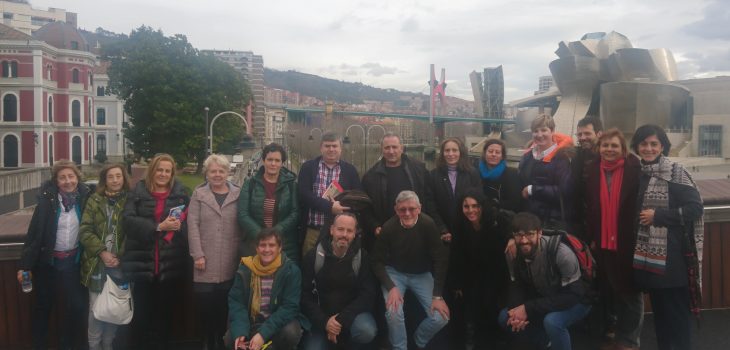Reference: 561735-EPP-1-2015-1-PT-EPPKA2-CBHE-JP
Title: Educational Modules for Electric and Electronic Circuits Theory and Practice following an Enquiry-based Teaching and Learning Methodology supported by Visir+
Funded By: Erasmus+ Programme of the European Union
From 2015-10-15 to 2018-04-14
Coordinator: INSTITUTO POLITECNICO DO PORTO (Portugal)
Participants:
- BLEKINGE TEKNISKA HOGSKOLA (Sweden)
- FACHHOCHSCHULE KÄRNTEN – GEMEINNÜTZIGE PRIVATSTIFTUNG (Austria)
- CONSEJO NACIONAL DE INVESTIGACIONES CIENTIFICAS Y TECNICAS (CONICET) (Argentina)
- UNIVERSIDADE FEDERAL DE SANTA CATARINA (Brasil)
- FACULDADES CATOLICAS ASSOCIACAO SEM FINS LUCRATIVOS (Brasil)
- UNIVERSIDAD NACIONAL DE SANTIAGO DEL ESTERO (Argentina)
- UNIVERSIDAD NACIONAL DE ROSARIO – UNR (Argentina)
- ASSOCIACAO BRASILEIRA DE EDUCACAO EM ENGENHARIA (Argentina)
- UNIVERSIDAD DE LA IGLESIA DE DEUSTO (Spain)
- UNIVERSIDAD NACIONAL DE EDUCACION A DISTANCIA (Spain)
- INSTITUTO FEDERAL DE EDUCACAO, CIENCIA E TECNOLOGIA DE SANTA CATARINA (Brasil)
Website: www2.isep.ipp.pt/visir/
Description:
“Educational Modules for Electric and Electronic Circuits Theory and Practice following an Enquiry-based Teaching and Learning Methodology supported by Visir+” project targets the broad area of Electrical and Electronics Engineering, and, within it, the subject of circuit theory and practice. It aims to define, develop and evaluate a set of educational modules comprising hands-on, virtual, and remote experiments, the later supported by a remote lab named Virtual Instruments Systems In Reality (VISIR). The nature of each experiment (hands-on, virtual, real-remote) has an impact on the students’ perception of circuits’ behaviour, being therefore mandatory to understand how these different learning objects can be arranged together in order to scaffold their understanding and increase their laboratory-based skills. This is the concern of the underpinning teaching and learning methodology, favouring in particular the students’ autonomy for discovering how circuits work, through an enquiry-based approach.
There has been an increased interest in science and engineering education due to: (1) the shortage of professionals required in scientific and technical areas; (2) the considerable low ratio of students opting for science- and engineering-related degrees, when entering higher education; and (3) the number of dropouts exhibited in the initial years of undergraduate studies. All stakeholders have devoted a great deal of attention and concern to this problem, considering the high number of reports published about and initiatives taken in recent years. In sum, the solutions have been dealing with: raising the society awareness for such a problem (1); increasing the interest for STEM among youngsters (1 and 2); and, promoting new teaching and learning methodologies, especially student-centred ones involving the use of ICT-tools, for coping with a new generation of digital natives (3).
VISIR+ brings together the power of the best remote lab for experiments with electrical and electronics circuits and the long history of collaboration among the consortium partners from Argentina, Austria, Brazil, Portugal Spain, and Sweden
